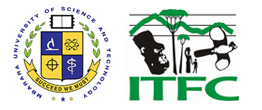The Local Economic Development Through Pro-Poor Tourism project has demonstrated that it is possible to develop sustainable livelihood opportunities from tourism – even when they are not based on the main tourism attraction themselves. At Bwindi Impenetrable National Park, tourists visit to see gorillas. None of the enterprises supported by this project are offering gorilla viewing tours, yet they all have complementary products that can enhance the main tourism attraction.
When systematically planned and implemented, responsible tourism enterprise contributes not just substantially to GDP, but also to the informal economy. At least 70 to 80% of tourism economic activity is accounted for by small businesses. Developed responsibly, tourism can make better places for people to live as well as better places for people to visit – whether for business or pleasure or both and delivers independent supply of goods and services.
On many occasions, small-scale tourism initiatives have been developed by NGOs with no business or market experience. There has been an assumption that if a product is developed the tourists will come. The failure of this model has resulted in deep cynicism about the viability of small-scale tourism as a strategy for incentivising conservation (just as the failure of many other so-called ‘alternative livelihood’ projects has.
This project has demonstrated, however, that small-scale tourism enterprises can be developed sustainably – as long as they are demand - not supply-driven and based on sound business principles. The experiences documented in this project demonstrates that the development of these small enterprises has induced a sense of worth, a sense of recognition and a degree of economic independence. This, in turn, contributes substantially to livelihood change and poverty reduction.
Our strategy has been not to develop primary tourism attractions such as community-based gorilla tracking but rather to focus on indirect tourism-related economic activities that are supplementary to day-to-day livelihood activities, can achieve substantive and substantial economic empowerment and provide added value by inducing forward linkages to downstream sectors. Diversifying the product base -underpinned by capacity development to deliver those products - reduces risk of market failure and, thus, underpins the sustainability of development. The results documented here have been life-changing for some participants.
It is too early to reflect on the importance of certification as a mechanism to enhance both livelihoods and conservation – time will tell if the enterprises are able to meet the standards of the Gorilla FriendlyTM certification and what difference this makes to them. But the experience with the Forest Friendly badge that was used to distinguish products that had resulted from the projects demonstrated power of labelling as a marketing tool – whether or not accompanied by a standard. The enterprises certified will be supported in advanced marketing of the products locally and through a dedicated website, while audits – for new and existing entities – will be conducted at least annually with the intent of developing a robust network of competent auditors. With the pilot in Bwindi, the audits will be expanded to around Mgahinga Gorilla National Park, Uganda, as well as Volcanoes National Park, Rwanda, and Virunga National Park, DRC, in subsequent years.
In terms of wider upscaling of the project, we hope that the example shown here can be replicated elsewhere both in Uganda and beyond. Within the project area further support is needed to take these enterprises to the next level of development – including business planning, marketing and financial management skills. Support is also needed to keep communications open between the lodges and producers, ensuring continuity of supply and maintenance of standards. Elsewhere in Bwindi, and around other national parks, emerging small enterprises would benefit from the same type of capacity.
Report File
- DocumentPropoor tourism project report.pdf (2.97 MB)
